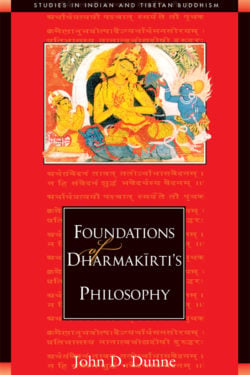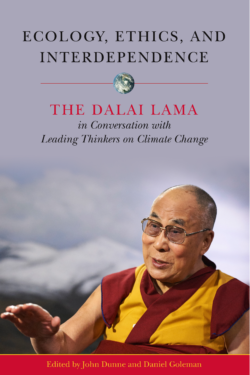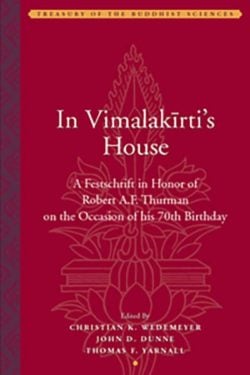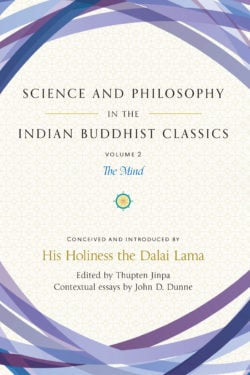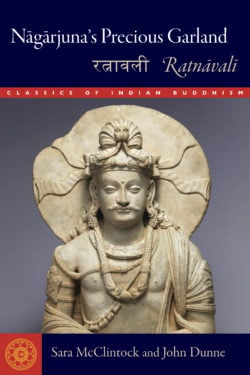John D. Dunne
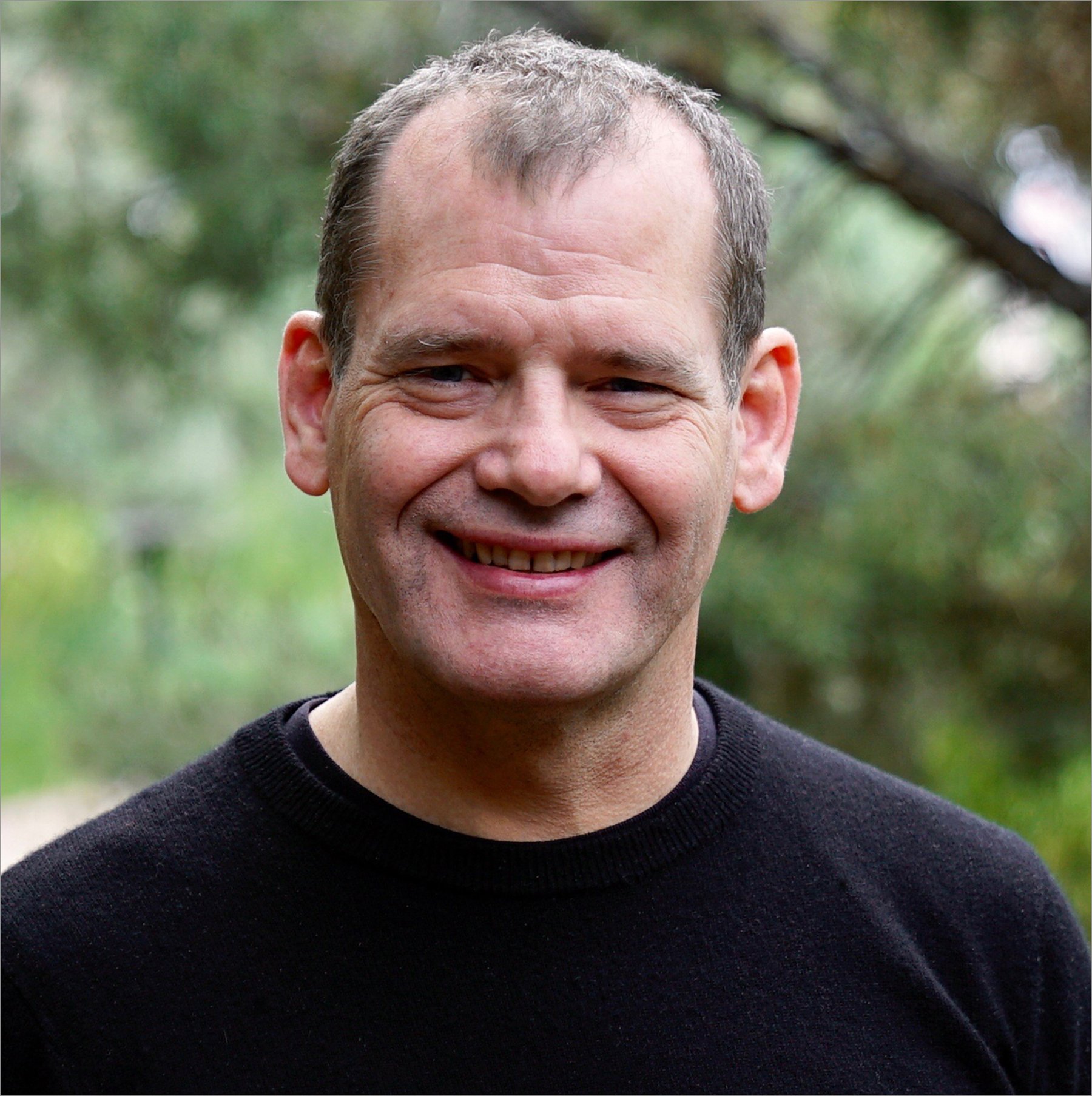
John D. Dunne serves on the faculty of the University of Wisconsin-Madison, where he holds the Distinguished Chair in Contemplative Humanities at the Center for Healthy Minds. He is also chair of the Department of Asian Languages & Cultures. His work focuses on Buddhist philosophy and contemplative practice, especially in dialog with Cognitive Science and Psychology. His more than fifty publications appear in venues ranging across both the Humanities and the Sciences, including Foundations of Dharmakīrti’s Philosophy (2004) and Science and Philosophy in the Indian Buddhist Classics: The Mind (2020). John Dunne speaks in both academic and public contexts, and he occasionally teaches for Buddhist communities. His broader engagements include being a Fellow of the Mind and Life Institute, where he was previously a member of the board of directors, and serving as an academic advisor to the Rangjung Yeshe Institute in Kathmandu, Nepal.
Books, Courses & Podcasts
Foundations of Dharmakīrti’s Philosophy
Throughout the history of Buddhism, few philosophers have attained the stature of Dharmakīrti, the “Lord of Reason” who has influenced virtually every systematic Buddhist thinker since his time.
Dharmakīrti’s renowned works, written in India during the philosophically rich seventh century, argue that the true test of knowledge is its efficacy, and likewise that only the efficacious is knowable and real. Around this central theme is woven an intricate web of interrelated theories concerning perception, reason, language, and the justification of knowledge. Masterfully unpacking these foundations of Dharmakīrti’s system, John Dunne presents the first major study of the most vexing issues in Dharmakīrti’s thought within its Indian philosophical context. Lucid and carefully argued, Dunne’s work serves both as an introduction to Dharmakīrti for students of Buddhism and a groundbreaking resource for scholars of Buddhist thought.
Learn more about the Studies in Indian and Tibetan Buddhism series.
Ecology, Ethics, and Interdependence
Engage with leading scientists, academics, ethicists, and activists, as well as His Holiness the Dalai Lama and His Holiness the Karmapa, who gathered in Dharamsala, India, for the twenty-third Mind and Life conference to discuss arguably the most urgent questions facing humanity today:
-
What is happening to our planet?
-
What can we do about it?
-
How do we balance the concerns of people against the rights of animals and against the needs of an ecosystem?
-
What is the most skillful way to enact change?
-
And how do we fight on, even when our efforts seem to bear no fruit?
Inspiring, edifying, and transformative, this should be required reading for any citizen of the world.
In Vimalakīrti’s House
Over the course of nearly half a century, Robert A. F. Thurman has left an indelible mark on numerous fields of study, including Buddhist literature, Tantric Buddhism, Tibetan studies, and the comparative sciences of mind. To celebrate his seventieth birthday, Thurman’s students and colleagues have come together to pay tribute to these contributions and to Thurman’s ongoing leadership in these fields by assembling a collection of essays of their own that extend and supplement his groundbreaking research.
In Vimalakīrti’s House is the result of this collaboration and represents a broad spectrum of cutting edge studies in areas central to Thurman’s own scholarly project. The resulting volume is itself a kind of “treasury of the Buddhist sciences,” insofar as its authors explore wide-ranging problems in art, literature, epistemology, history, ritual, buddhology, and lexicography.
Science and Philosophy in the Indian Buddhist Classics, Vol. 2
This, the second volume in the Science and Philosophy in the Indian Buddhist Classics series, focuses on the science of mind. Readers are first introduced to Buddhist conceptions of mind and consciousness and then led through traditional presentations of mental phenomena to reveal a Buddhist vision of the inner world with fascinating implications for the contemporary disciplines of cognitive science, psychology, emotion research, and philosophy of mind. Major topics include:
- The distinction between sensory and conceptual processes and the pan-Indian notion of mental consciousness
- Mental factors—specific mental states such as attention, mindfulness, and compassion—and how they relate to one another
- The unique tantric theory of subtle levels of consciousness, their connection to the subtle energies, or “winds,” that flow through channels in the human body, and what happens to each when the body and mind dissolve at the time of death
- The seven types of mental states and how they impact the process of perception
- Styles of reasoning, which Buddhists understand as a valid avenue for acquiring sound knowledge
In the final section, the volume offers what might be called Buddhist contemplative science, a presentation of the classical Buddhist understanding of the psychology behind meditation and other forms of mental training.
To present these specific ideas and their rationale, the volume weaves together passages from the works of great Buddhist thinkers like Asaṅga, Vasubandhu, Nāgārjuna, Dignāga, and Dharmakīrti. His Holiness the Dalai Lama’s introduction outlines scientific and philosophical thinking in the history of the Buddhist tradition. To provide additional context for Western readers, each of the six major topics is introduced with an essay by John D. Dunne, distinguished professor of Buddhist philosophy and contemplative practice at the University of Wisconsin. These essays connect the traditional material to contemporary debates and Western parallels, and provide helpful suggestions for further reading.
Explore the entire series here.
Nāgārjuna’s Precious Garland
Winner of the 2025 Khyentse Foundation Prize for Outstanding Translation
This elegant and precise rendering of Nāgārjuna’s work is certain to become the touchstone translation of this celebrated Buddhist text.
In this profound work of five hundred verses, we encounter a presentation of Buddhism that integrates both the worldly and the transcendent. The clear and sagacious advice laid out on every page serves as a road map to one’s highest goal—whether that goal is a better life, here called the Dharma of ascendance, or the ultimate one of spiritual freedom, the Dharma of the highest good. The verses, written for an unnamed ruler, touch on questions of statecraft, but their broader themes speak to us today because they tackle the difficulty of integrating one’s spiritual journey with the social and political demands of daily life.
Nāgārjuna was an Indian Buddhist teacher, probably of the second century CE, who was renowned for his astute articulation of the philosophy of the Middle Way (Madhyamaka). His thoroughgoing critique of all forms of essentialism became a touchstone for Mahāyāna Buddhism in India, Tibet, and throughout East Asia, and his importance for the development of the Mahāyāna tradition can scarcely be exaggerated.
The translators here first rendered Nāgārjuna’s letter for the Dalai Lama’s teachings on the work in Los Angeles in 1997. While that commemorative edition was translated from the Tibetan, the present volume prioritizes the surviving Sanskrit verses along with the only known Indian commentary, by the eleventh-century scholar Ajitamitra. This is the first complete translation in English of the Precious Garland that takes the Indian text and commentary as its primary authorities. In addition, they provide rigorous working editions of the Sanskrit and Tibetan verses they translate.
Learn more about the Classics of Indian Buddhism series.
Varieties of Buddhist Meditation
Discover the theory and practice of the different types of meditation as taught in India and Tibet with acclaimed scholar John Dunne.
Contemplative practice plays a central role in all Buddhist traditions, and this course offers an accessible account of the varieties of core practices and their underlying theories. We begin by exploring the styles of practice prominent in early Buddhism, and then examine the new versions of practice, including tantric approaches, that arise with the Mahāyāna or “Great Vehicle” in India. We then turn to the contemplative styles that these Indian approaches inspire in the traditions of Tibet, such as the nondual practice of mahāmudrā.
John Dunne: Dharmakīrti, Conceptuality, and Antidotes for Distorted Thinking (#96)
For this episode of the Wisdom Podcast, host Daniel Aitken speaks with Professor John Dunne, acclaimed scholar and teacher in both Indian and Tibetan Buddhist traditions. John’s research focuses on Buddhist philosophy in relationship to contemplative practice, religious studies, and cognitive science. John is presently Distinguished Professor of Contemplative Humanities at the University of Wisconsin–Madison and author of several publications, including Foundations of Dharmakīrti’s Philosophy, published by Wisdom.
In this rich conversation, you’ll hear John take a deep dive into the world of human conceptuality and, specifically, its relationship to human suffering. For John, as well as for the philosophers he studies, the root of our suffering is not human emotion itself but rather our distorted perceptions. You’ll hear John discuss the structures that underlie perception and how they play a role—for better or for worse—in determining how we conceptualize ourselves and our experiences. John also explains how different types of meditation can serve as antidotes to various categories of distorted thinking.
Lastly, you’ll hear John discuss the difference between learning conceptually versus learning experientially. John asserts that conceptual ideas don’t necessarily change our behavior—instead, we need experiential knowledge to catalyze a deeper internal shift in our understanding.
John Dunne: Dharmakīrti, Perception, and Cognitive Science
For this episode of the Wisdom Podcast, host Daniel Aitken speaks with John Dunne, Distinguished Professor of Contemplative Humanities at the University of Wisconsin–Madison and author of Foundations of Dharmakīrti’s Philosophy, published by Wisdom. John’s research focuses on Buddhist philosophy in relationship to contemplative practice, religious studies, and cognitive science. In this rich conversation, John covers a wide array of fascinating topics. He talks about the innate need for physiological connection with other human beings and its relationship to both fear and anxiety within both Buddhist and cognitive science perspectives. He then delves deeply into the world of Dharmakīrti’s philosophy of perception, comparing Dharmakīrti’s views with that of other Indian Buddhist philosophers as well as Tibetan Mahāmudrā. John weaves all this together within an intriguing account of his own life story. He talks about his spiritual quest for his so-called “true identity” as a young person, his multiple paths through college including his time at Harvard University, and the great impact of his teachers such as Robert Thurman and Chokyi Nyima Rinpoche.

